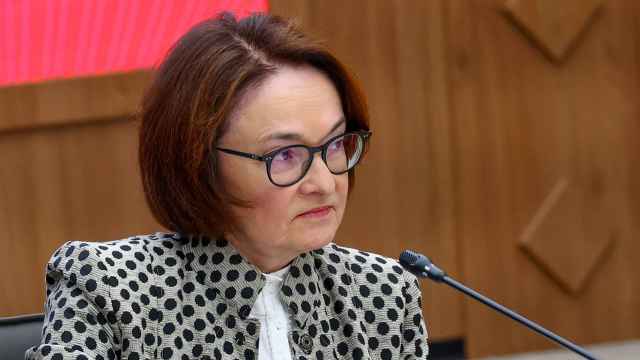The federal communications watchdog on Monday appointed Konstantin Chertkov as director of the General Radio Frequency Center following scandals over the distribution of fourth-generation licenses.
The center provides analysis on how mobile operators plan to use radio frequencies, which is then used by the state to determine how licenses are distributed.
Chertkov replaces Valery Naslednikov, whose contract was terminated Friday, the Federal IT and Mass Media Inspection Service said in a statement. Naslednikov was removed following checks conducted in August, the statement said.
Earlier this year, the center supported the license application for frequencies for wireless Internet provider Skartel, which operates the Yota brand, for 170 cities across the country. The approved frequencies could be used for 4G technologies WiMax and LTE.
The Federal IT and Mass Media Inspection Service revoked the licenses in July after an internal audit. But in August, Skartel — whose shareholders include state corporation Russian Technologies — sued to regain the frequencies and has since won an injunction delaying the confiscation.
The Federal Property Management Agency has also asked police to investigate the loss of 1.5 billion rubles ($50 million), which Naslednikov moved without its consent to several banks — two of which failed in the financial crisis, Vedomosti reported last week.
Chertkov had led the Radio Frequencies Center of the Northwest Federal District since 2006, the statement said. From 2001 to 2006, Chertkov held several industry posts in MegaFon branches in northwestern Russia, it said.
The process for awarding frequencies, which is the responsibility of the Communications and Press Ministry, was heavily criticized this summer by the country's big three mobile operators, when it seemed that key 4G frequencies might be awarded without a tender to firms partly owned by the Defense Ministry and state-owned Rostelecom.
Mobile TeleSystems, VimpelCom and MegaFon wrote joint letters to the government and President Dmitry Medvedev asking for a more transparent process, and a final decision on the frequencies was delayed.
The State Committee for Radio Frequencies will consider 4G frequency distribution at its meeting Friday, the Communications and Press Ministry said Monday in a statement on its web site.
The Federal Anti-Monopoly Service, which just reached a settlement with the big three on the prices they charge for roaming, said late last week that frequencies for LTE should be available to regional players as well.
"Attracting regional operators is essential to supporting competition and to preventing consumers from anti-competitive actions," said Anatoly Golomolzin, the service's deputy chief, Interfax reported.
Analysts downplayed a possible conflict of interest because of Chertkov's work at MegaFon, saying any perception of favoritism would be loudly protested — including by foreign shareholders in MTS and VimpelCom.
"Building LTE networks requires serious investment, and I'm not certain that MegaFon would be able to provide full-fledged coverage by itself," said Sergei Libin, a telecoms analyst at IFC Metropol.
"I would assess Chertkov's work experience in one of the big three operators as an additional argument in favor of those [three] companies receiving the frequencies, rather than some other holdings," Libin told The Moscow Times.
A Message from The Moscow Times:
Dear readers,
We are facing unprecedented challenges. Russia's Prosecutor General's Office has designated The Moscow Times as an "undesirable" organization, criminalizing our work and putting our staff at risk of prosecution. This follows our earlier unjust labeling as a "foreign agent."
These actions are direct attempts to silence independent journalism in Russia. The authorities claim our work "discredits the decisions of the Russian leadership." We see things differently: we strive to provide accurate, unbiased reporting on Russia.
We, the journalists of The Moscow Times, refuse to be silenced. But to continue our work, we need your help.
Your support, no matter how small, makes a world of difference. If you can, please support us monthly starting from just $2. It's quick to set up, and every contribution makes a significant impact.
By supporting The Moscow Times, you're defending open, independent journalism in the face of repression. Thank you for standing with us.
Remind me later.





